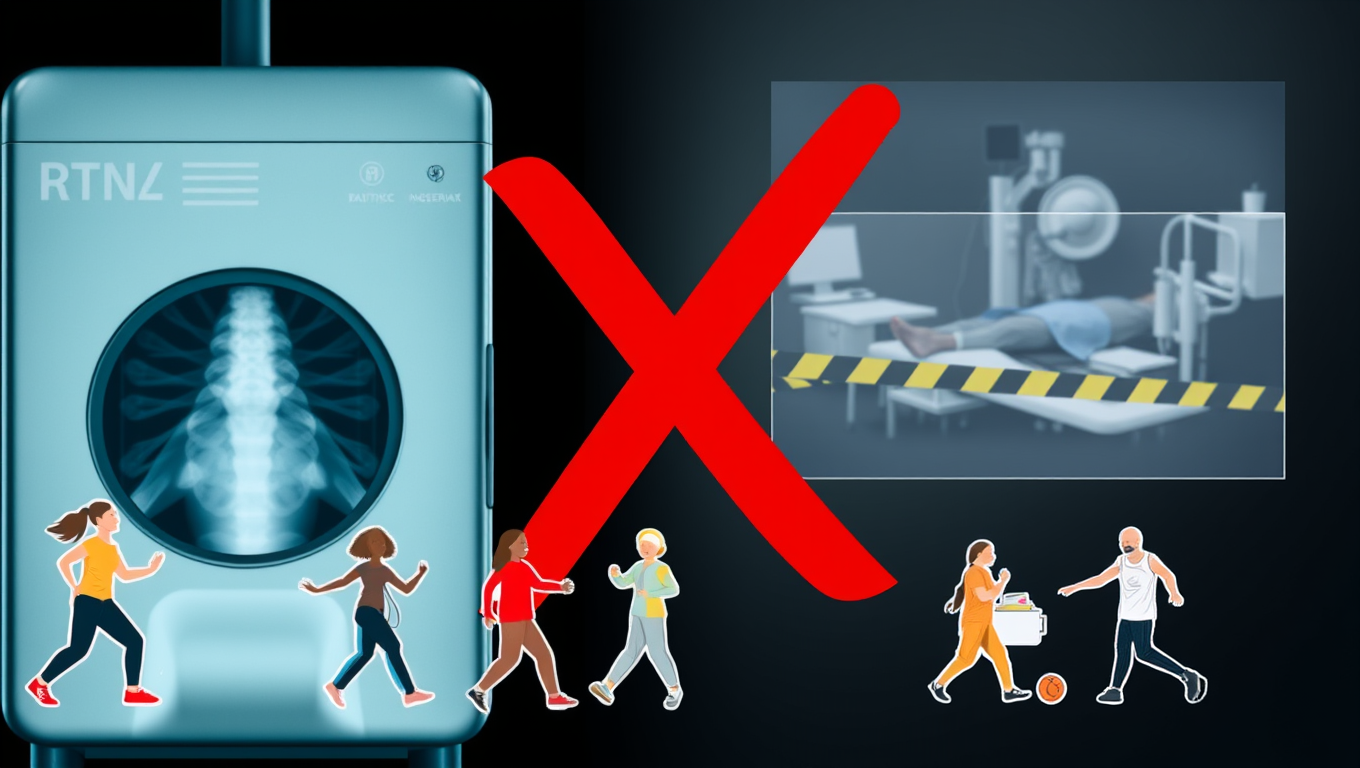While we try to keep things accurate, this content is part of an ongoing experiment and may not always be reliable.
Please double-check important details — we’re not responsible for how the information is used.
Diet and Weight Loss
Exercise: The Key to Maintaining Vitamin D Levels in Winter
New research shows that regular exercise can help maintain Vitamin D levels during the darker months.

Birth Control
Scientists Uncover Groundbreaking Treatment for Resistant High Blood Pressure
A breakthrough pill, baxdrostat, has shown remarkable success in lowering dangerously high blood pressure in patients resistant to standard treatments. In a large international trial, it cut systolic pressure by nearly 10 mmHg, enough to significantly reduce risks of heart attack, stroke, and kidney disease. The drug works by blocking excess aldosterone, a hormone that drives uncontrolled hypertension.
Arthritis
The Alarming Impact of Routine X-Rays on Arthritis Patients’ Decisions
Knee osteoarthritis is a major cause of pain and disability, but routine X-rays often do more harm than good. New research shows that being shown an X-ray can increase anxiety, make people fear exercise, and lead them to believe surgery is the only option, even when less invasive treatments could help. By focusing on clinical diagnosis instead, patients may avoid unnecessary scans, reduce health costs, and make better choices about their care.
Dementia
Unlocking the Secrets of Women’s Alzheimer’s Risk: Omega-3 Deficiency Revealed
Researchers discovered that women with Alzheimer’s show a sharp loss of omega fatty acids, unlike men, pointing to sex-specific differences in the disease. The study suggests omega-rich diets could be key, but clinical trials are needed.
-

 Detectors10 months ago
Detectors10 months agoA New Horizon for Vision: How Gold Nanoparticles May Restore People’s Sight
-

 Earth & Climate11 months ago
Earth & Climate11 months agoRetiring Abroad Can Be Lonely Business
-

 Cancer10 months ago
Cancer10 months agoRevolutionizing Quantum Communication: Direct Connections Between Multiple Processors
-

 Albert Einstein11 months ago
Albert Einstein11 months agoHarnessing Water Waves: A Breakthrough in Controlling Floating Objects
-

 Chemistry10 months ago
Chemistry10 months ago“Unveiling Hidden Patterns: A New Twist on Interference Phenomena”
-

 Earth & Climate10 months ago
Earth & Climate10 months agoHousehold Electricity Three Times More Expensive Than Upcoming ‘Eco-Friendly’ Aviation E-Fuels, Study Reveals
-

 Agriculture and Food10 months ago
Agriculture and Food10 months ago“A Sustainable Solution: Researchers Create Hybrid Cheese with 25% Pea Protein”
-

 Diseases and Conditions11 months ago
Diseases and Conditions11 months agoReducing Falls Among Elderly Women with Polypharmacy through Exercise Intervention





























